Is Alaska expensive? Find out how to cut costs
After all, is Alaska expensive? Check out the average costs and find out how to visit or live there on a budget.
8min
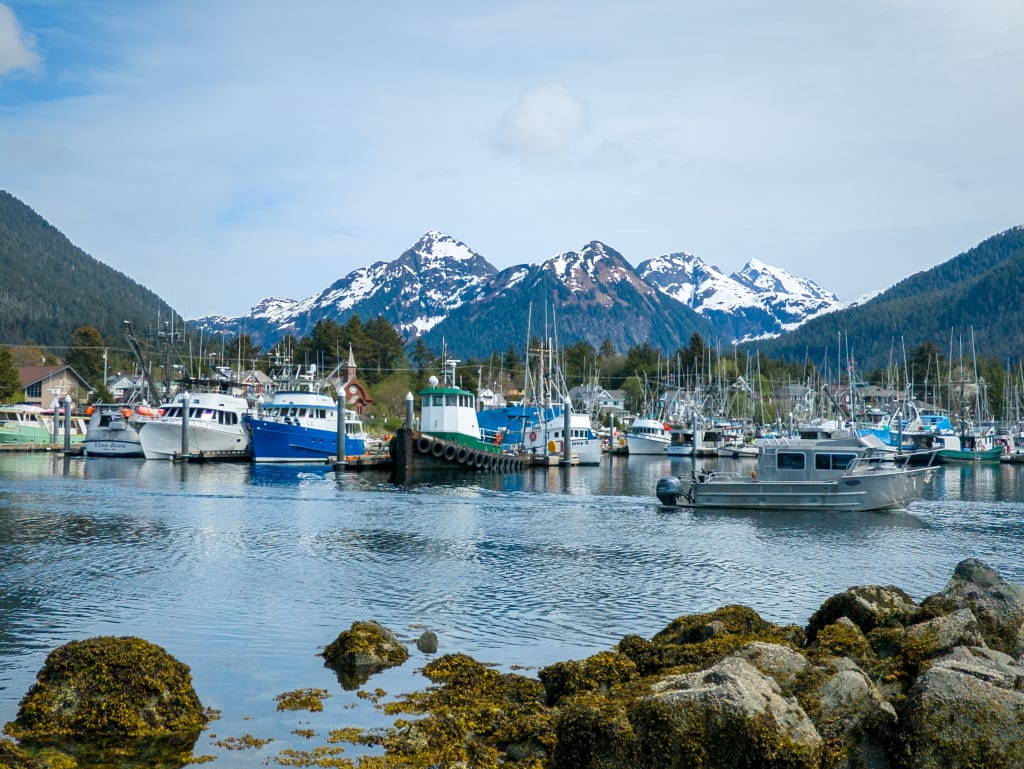
Ever looked at a map and found your eyes drawn to that massive, mysterious expanse in the upper left corner? Alaska, our nation's final frontier, is a fascinating place. But if you’re planning on visiting or even moving there, you’ve probably wondered - is Alaska expensive?
In this article we'll dive into topics ranging from housing prices to typical utility bills and transportation costs, to help you be prepared before going to visit or live in Alaska. We’ll also give you some tips to enjoy this beautiful state on a budget, so stay with us until the end!
You might also like to read:
- Backpacking Hawaii: budget-friendly adventure guide
- 7 amazing mountain vacations in the USA
- The cheapest and safest places to live in the USA
Is Alaska expensive?
The answer to the question "Is Alaska expensive?" isn't a simple yes or no. While it's true that living in Alaska can have higher costs compared to many American cities, there are ways to make life more affordable.
The overall cost of living in Alaska was 16,66% higher than the national average as of August 2023, according to a ranking made by Insure.com using data from the Center for Regional Competitiveness, a management organization that oversees the Council for Community and Economic Research.
That's quite high, but it's less than the average cost of living in Hawaii, California, Massachusetts, New York, and Washington D.C.
Alaska's unique geography contributes significantly to its elevated costs. Most goods must be shipped or flown into this remote region because there aren’t many highways connecting it with rest parts of America which bumps up prices for almost everything—from groceries and gasoline to clothing and construction materials.
However, larger cities like Anchorage tend to come with a heftier price tag while rural areas offer some respite for your wallet. The average annual income is also quite decent, which helps balance out those extra costs if you choose to live there.
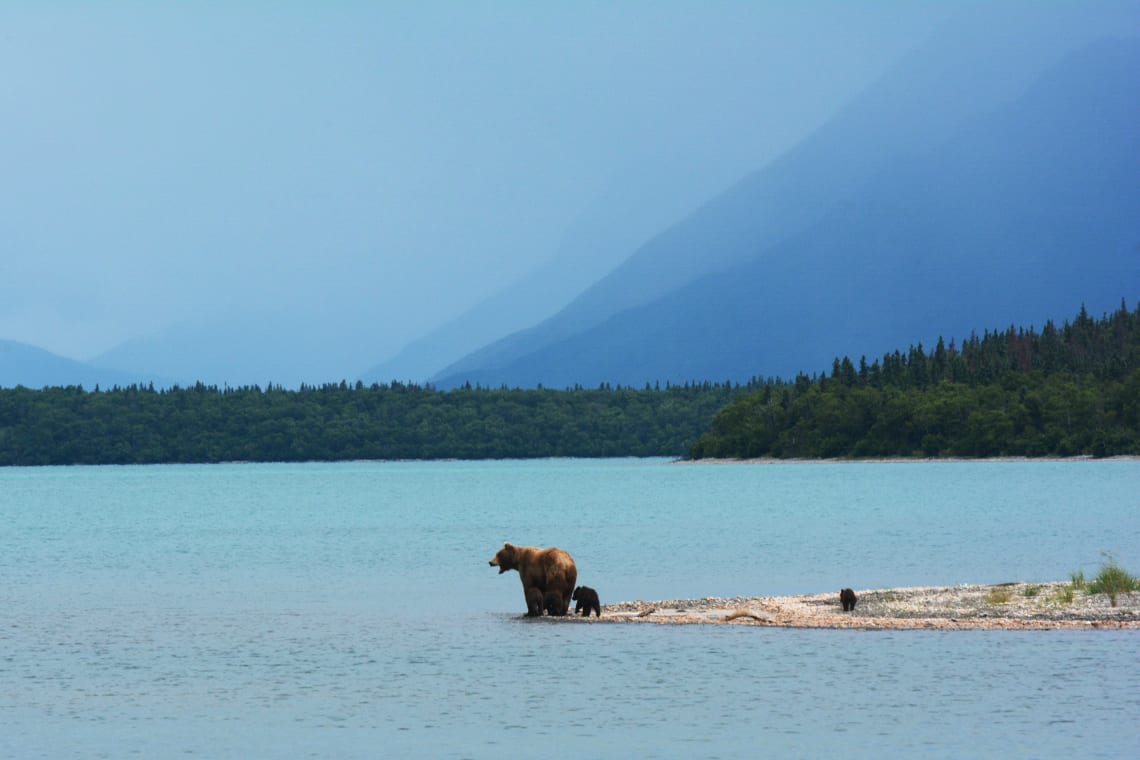
Cost of living in Alaska
Housing costs in Alaska
Are you dreaming of owning a home amidst the natural beauty of Alaska? You're not alone. Before you start packing, consider the expenses related to housing in this northern state.
In general, homes cost a little more in Alaska than in most of the rest of the U.S. According to Redfin.com, the state median home value is $362,000, as of September 2023. Meanwhile, the average rent for a one-bedroom apartment in Anchorage is $1,389, according to the website RentCafe. Rural areas offer more spacious properties, and usually cheaper options, but fewer amenities close by.
Surely though we must remember: living anywhere has its trade-offs. While you might pay more for a place in Alaska compared to other American cities, what price tag would you put on waking up every day surrounded by stunning wilderness and unique wildlife?
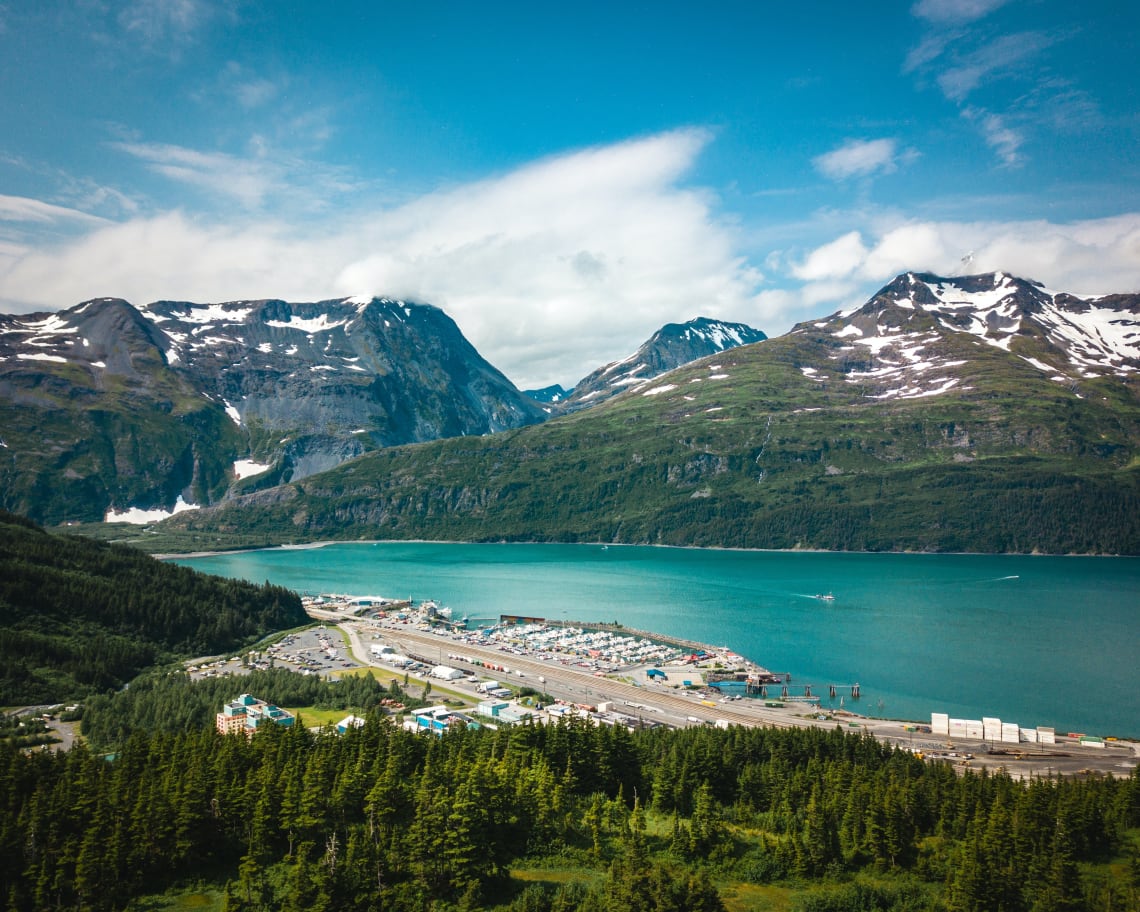
Utility costs in Alaska
If you're making plans to go and explore the Alaskan wilds or thinking about relocating there, be aware that utilities costs are usually about a third greater than normal. The average monthly electric bill alone stands at $134, according to Sofi.com.
You might wonder why utilities cost more here? Well, it's due partly because of Alaska’s remoteness and harsh weather conditions. Just think of how much energy is needed to keep homes warm when outside temperatures dip below freezing regularly.
Natural gas prices also play a significant role in your total utility expenses in Alaska - they can make your bills balloon faster than marshmallows over an open fire. So while heating your home with natural gas might sound cozy on those long winter nights, remember that these fuel oil costs will impact your overall budget.
The good news is that some residents offset their high utility bills by taking advantage of the annual permanent fund dividend given out by the state government. This yearly windfall varies based on several factors including oil revenues and investment earnings from previous years' dividends saved into this fund.
Sales taxes in Alaska
Another good news: in Alaska, sales tax is an exception to the norm. That's right, while most American cities levy a hefty sales tax on goods and services, the Last Frontier doesn't have a state sales tax.
However - and here comes an icy gust of reality - some municipalities choose to impose their own local taxes. In these regions, shoppers might find themselves paying anywhere from 1% up to 7%.
If you plan to visit Alaska or move permanently, understanding how different towns approach sales taxes could be important. It might not only impact where you decide to settle but also affect your overall budget planning.
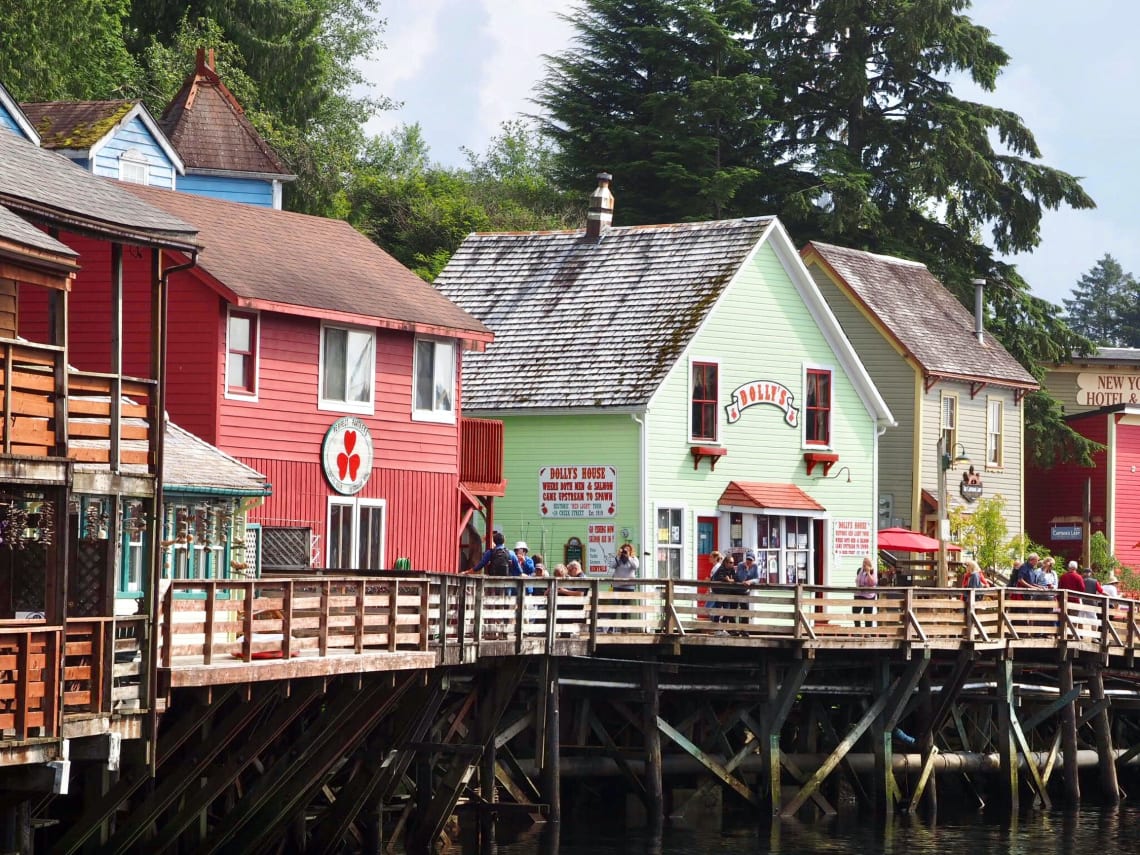
Restaurant and grocery prices in Alaska
Let's take a peek at what the grocery aisles in Alaska look like, price-wise. The Bureau of Economic Analysis estimates the average annual food cost per person to be $4,120, which means about $343 per month. Remember that goods tend to carry high prices in Alaska due to shipping expenses from outside locations.
In Anchorage, also according to Numbeo, 1 liter of milk will usually cost from $1 to $1,60, a loaf of fresh white bread (500g) is between $2,74 and $5,50 and 1kg of chicken fillets cost from $6,60 to $17,60.
Prefer eating out? A meal for one at an inexpensive restaurant ranges from $15 to $28, while a three-course meal for 2 people at a mid-range restaurant starts at $60, according to Numbeo.
Health care costs in Alaska
Alaskans face health care expenses that are higher than the national average. According to State of Reform, the average per-person spending is around $14,500. Despite the extra costs, Alaskan health care providers are highly skilled and offer top quality service.
You might also like to read:
- Cheapest places to live in New York: 5 cities outside the Big Apple
- The best backpacking trails in the US for an unforgettable adventure
- How to travel cheap in the USA? Go to any state without spending much
Transportation costs in Alaska
Alaska’s vastness and remoteness also impact transportation costs. With limited road connectivity between towns, you may rely more heavily on air travel or ferries which could add up. That said, if you live within city limits like Anchorage or Juneau, where public transit is available, getting around won't break your bank.
You might want to consider investing in a reliable vehicle especially if you plan to explore the more remote areas of the state, but that comes with a price. In Alaska, gas prices tend to run higher than what you may be used to: as of October 2023, it’s about $0.90 above the national average.
The good thing is that vehicle insurance premiums in Alaska are usually lower than other states, which can help to offset some of the expenses for gas.
You may also want to consider using public transportation when available – especially in bigger cities like Anchorage or Fairbanks, where services are more widely accessible.
For shorter distances within town limits during warmer seasons, why not bike? Many Alaskan communities encourage cycling by providing well-maintained paths and bike racks around town centers.
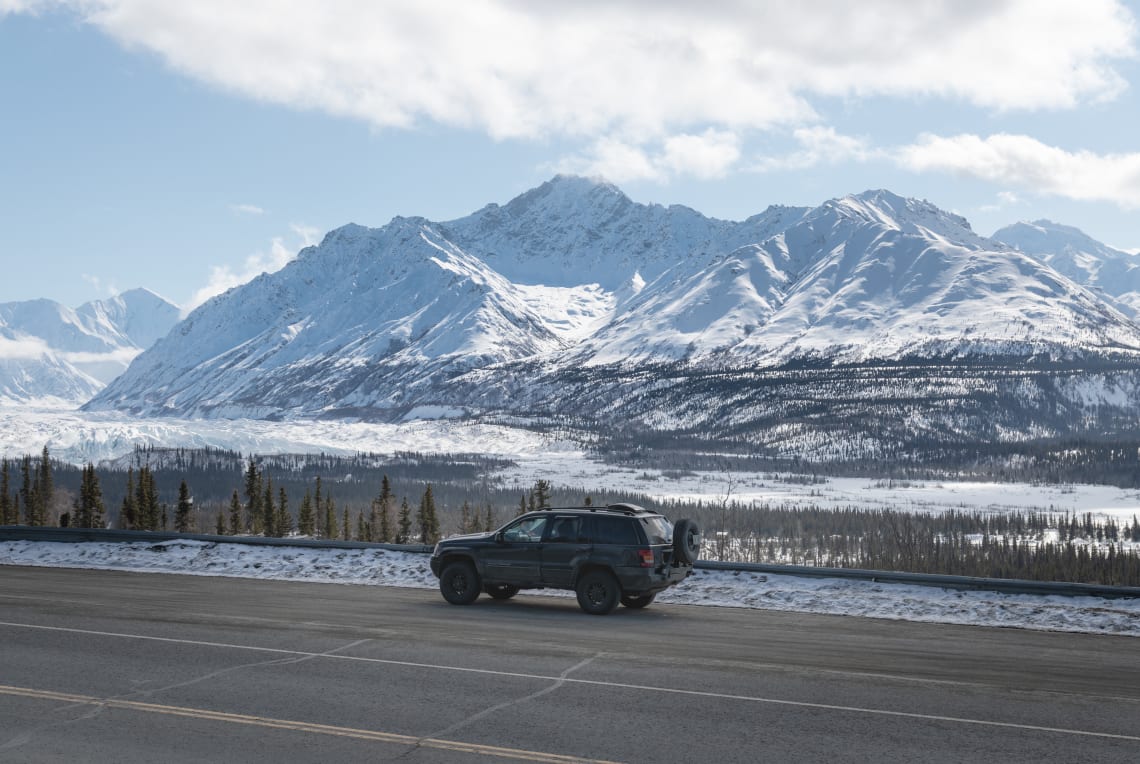
How to save money in Alaska
All that said, there sure are ways to travel cheaply in Alaska, and even live there for free for a few months – by the way, that’s a great way to experiment daily life there and decide if you want to make a definitive move. Let's dive into some practical ways of exploring this northern wonderland on a budget.
Opt for volunteer travel with Worldpackers
The best way to escape Alaska’s high accommodation prices while also immersing yourself in local culture is by joining Worldpackers. This platform lets travelers volunteer their skills at local businesses, NGOs, farms, and other hosts around the world. In return for your work, you'll get free accommodation and sometimes other perks, like meals, classes, and tours.
This gives a whole new meaning to budget traveling. By volunteering through Worldpackers when coming to Alaska, not only do you cut down on costs but also immerse yourself deeply into Alaskan life.
It’s also a great way to make friends – who you can split some costs with, such as food and transportation -, learn new skills and go beyond your comfort zone, which brings immense personal growth.
Curious to find out more? Read our articles about how Worldpackers works and check out some of the volunteer travel opportunities in Alaska:
- Organic farming in the Matanuska Valley: In the Spring you can help prepping the field, sowing seeds, cultivating those seeds in the field, weeding, and watering. During summer and fall, helpers will have the opportunity to harvest and sell the fruits and vegetables at the local farmers’ markets. In exchange for your help, you'll get two days off per week, free accommodation, breakfast, lunch, dinner, free laundry, tours, bikes at your disposal, use of an equipped kitchen and much more.
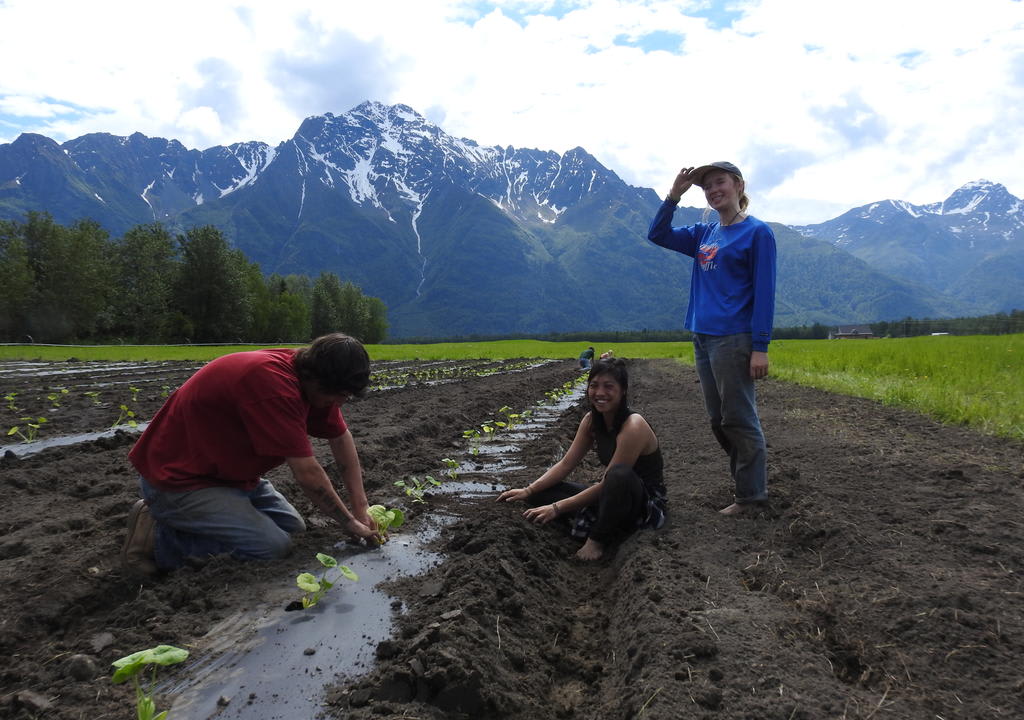
- Explore Alaska and meet guests from around the world: Volunteer at a small 25-bed community-driven hostel. Their staff are outdoor enthusiasts and happy to share their experiences with volunteers, and the schedule allows plenty of time to explore Alaska. You'll help 5 hours a day, 3 to 4 days a week, with tasks such as cleaning the hostel, changing beds, gardening, helping guests with questions and tours of the hostel. Besides accommodation you'll get free breakfast, laundry, use of their equipped kitchen and discounts on tours.
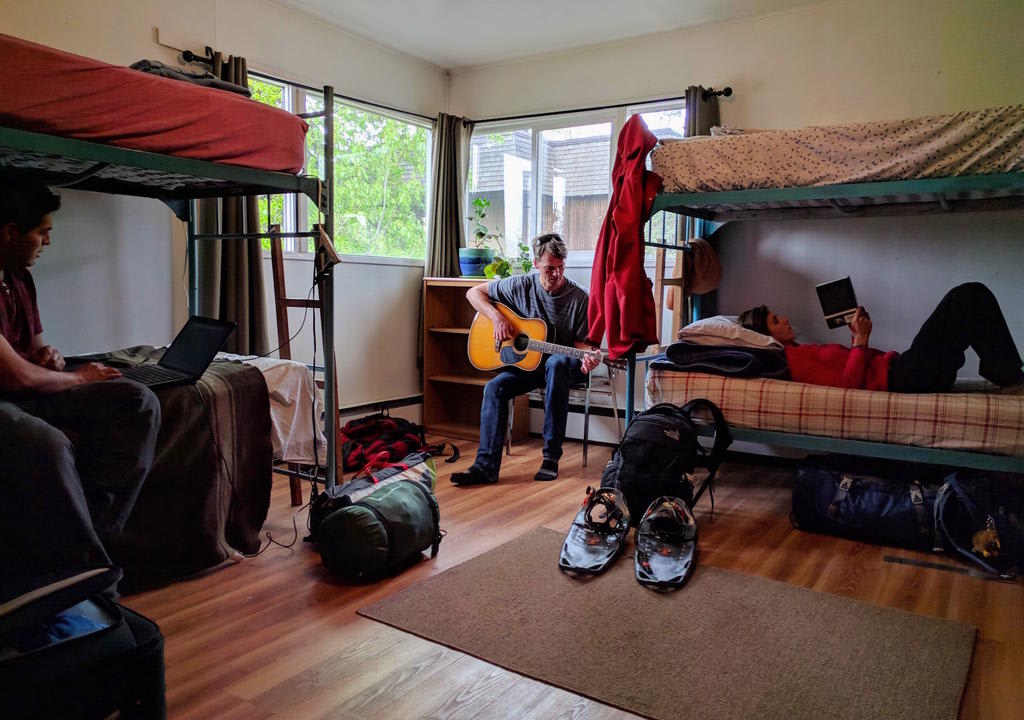
- Stay in a Treehouse & Create an Alaska Garden in Talkeetna: Contribute and connect with a family of 4 that lives in an off-grid location and needs help to create a new garden, among other tasks. Talkeetna is a quirky village on the south side of Denali, that offers outdoor activities such as fishing, kayaking and hiking. Participate in local events and enjoy your 3 days off per week. You'll get a private room, breakfast, lunch and dinner, free tours, bikes at your disposal, use of their kitchen and other perks.
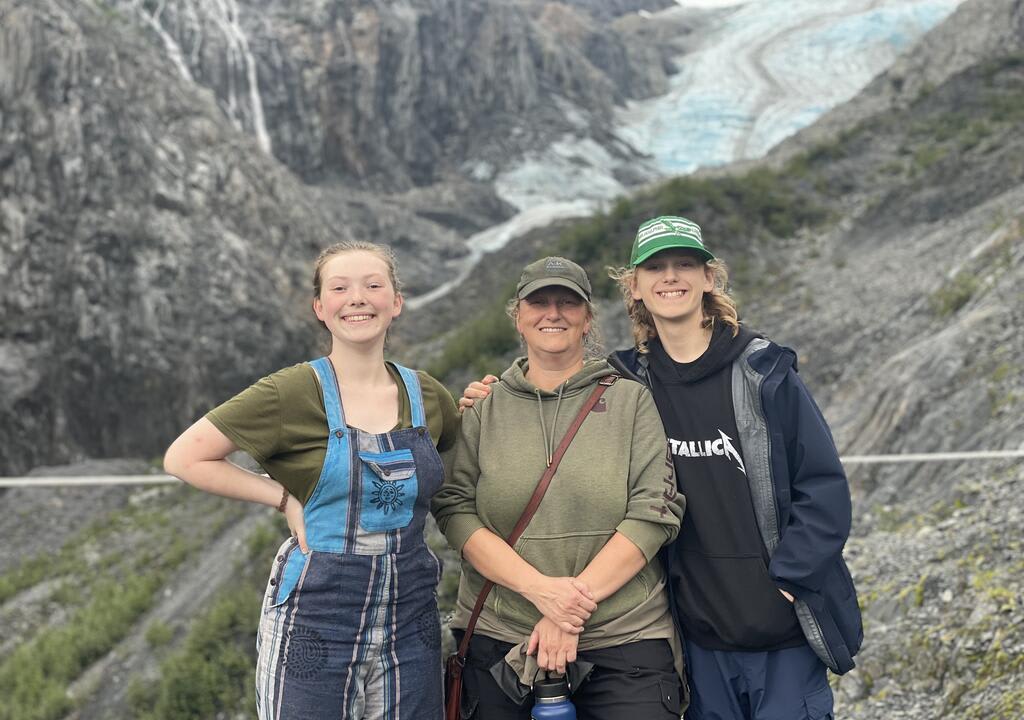
- Homestead Helpers in remote Alaskan village at the Kenai Peninsula Borough: This place is a former B&B operation looking to host volunteers who are eager to help out with gardening, painting and decorating. Guests will learn to live off the Alaskan land and leave with extra knowledge of small village living. You'll get accommodation, dinner, use of equipped kitchen and 3 days off per week.
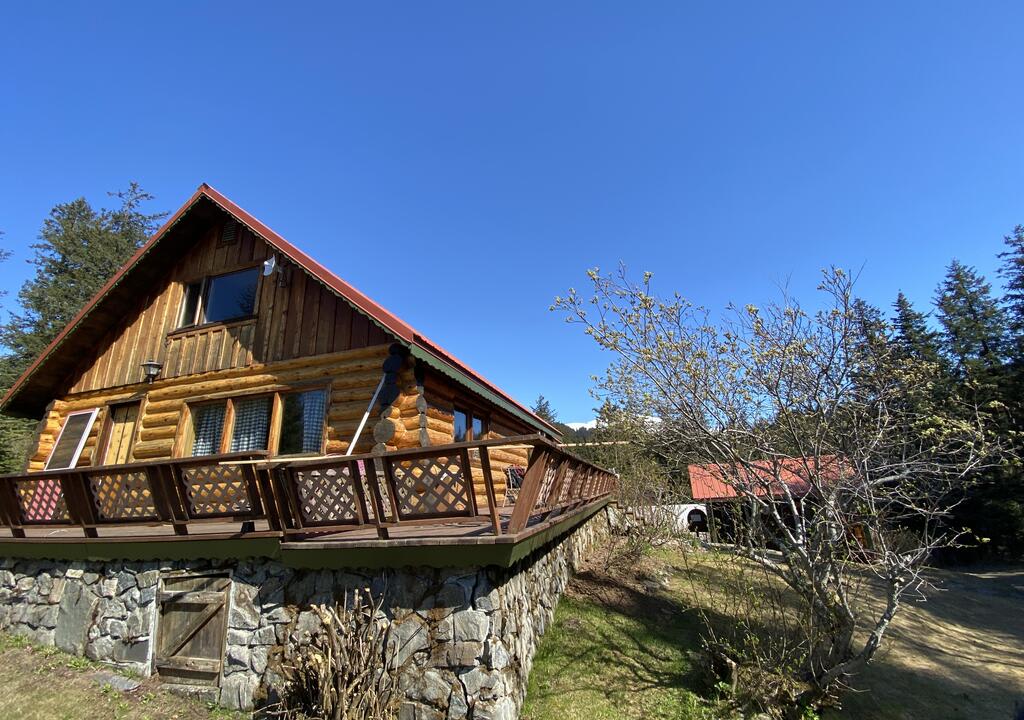
Eat local foods
Sure eating out every night sounds great until you see your bank account crying for mercy. Eating local foods from local markets can significantly reduce food expenses because they are usually cheaper than dining out.
Besides being wallet and environmentally friendly, since you’ll avoid long transportation routes, trying locally sourced produce will give an authentic taste of what Alaskans eat daily.
Rent instead of buying gear
If outdoor adventure calls your name, think twice before buying gear outright. Alaska has numerous places where you can rent equipment. By renting, not only do you save money but also space in your suitcase.
Cut transportation costs with carpooling or public transit
Renting a car seems convenient until you factor in the costs of fuel and parking fees. Why not opt for cheaper options such as public transportation or carpooling?
Keep reading:
- How to travel for free: the secret that no one tells you
- How to be a budget backpacker and see the world with little money
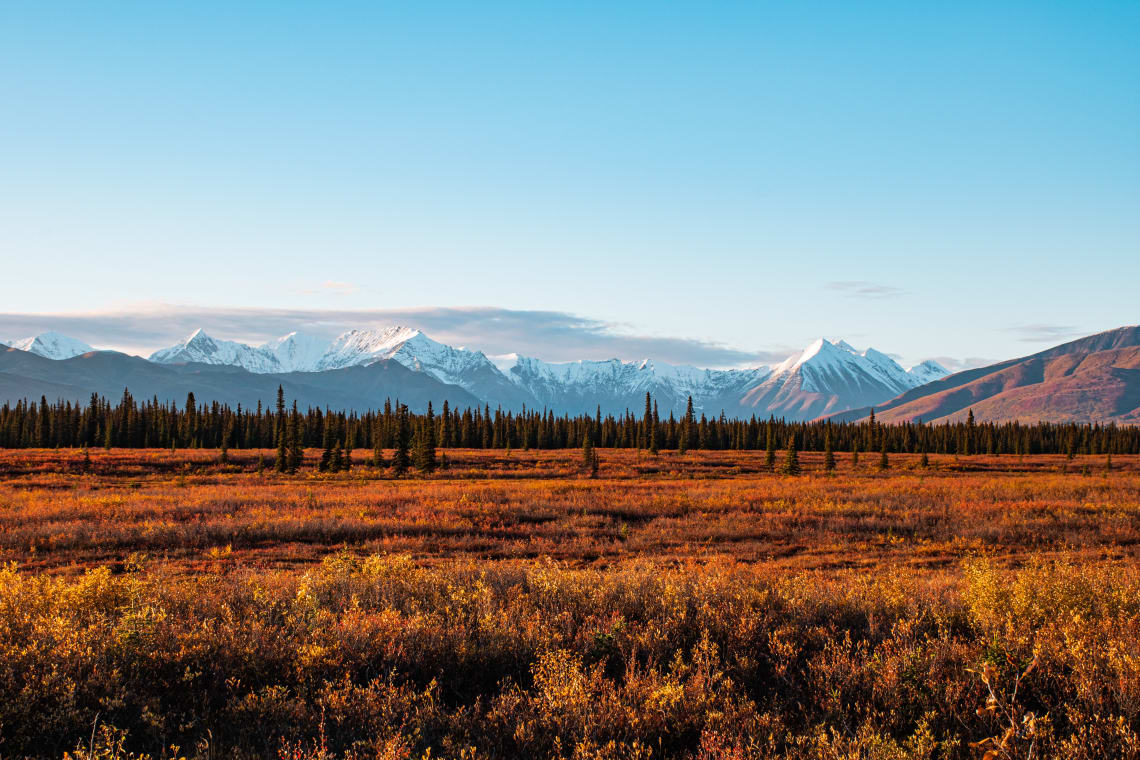
So, is Alaska expensive?
In conclusion, is Alaska expensive or not? Residing in the remote region does carry a hefty cost, with higher housing prices, utility payments and other costs. However, the benefits of visiting or living in The Last Frontier shouldn't be overlooked.
If you're looking for an escape from city life and crave a closer connection to nature, Alaska is worth every penny. Imagine witnessing the Northern Lights paint the sky in surreal hues or exploring vast untouched wilderness teeming with wildlife.
And you can do all that without paying for accommodation if you apply for a Worldpackers volunteer program — a smart way to save money while getting an authentic Alaskan experience.
We hope we’ve answered your questions related to the cost of living in Alaska. Browse through our travel blog and follow us on Instagram and Tiktok for more travel tips and inspiration.











